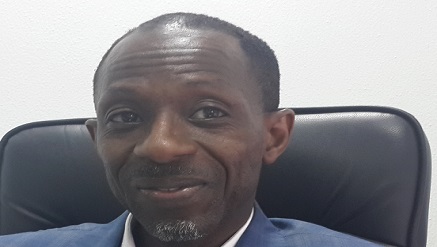E-Financial
Ghana’s Fidelity Bank Seals 5 Year Deal with IBM

At the U.S. Africa Business Forum in Washington, D.C on Tuesday, Ghana’s Fidelity Bank announced its choice of IBM to manage its technology infrastructure and services.
The five year deal will help the bank deliver advanced customer services and secure its reputation as a dynamic financial services institution in West Africa.
Currently one of the largest banks in Ghana, Fidelity Bank Ghana Limited is seeking to enhance its operational efficiencies as it embarks on a new strategic direction, developing growth plans and strategies for new markets, products and services.
Fidelity Bank pioneered agency banking in Ghana, contracting third party retail networks called Fidelity Smart Agents to provide services on its behalf, with the objective of offering the full benefits of its services and products to the unbanked and under-banked in the country.
Fidelity Bank was licensed by the Bank of Ghana (BoG), the local industry regulator, in 2006; and has made tremendous strides in the past 7 years to become a Tier1 Bank.
The quality of its product offerings and its high professional standards has propelled its franchise into a leading Ghanaian brand.
The bank now has a balance sheet of approx. USD $1billion.
Fidelity Bank’s choice of IBM to manage the administration and governance of its technology assets and operations will further entrench its position as a leading, financial institution in West Africa.
The aim of the technology management services deal is to ensure stability in the bank’s operations nationwide and help drive its projected exponential growth, as it seeks to become one of Ghana’s top 3 banks in the next 5 years.
To support the bank’s goals, IBM will combine local and international expertise, including round-the-clock technical support from IBM’s international Global Delivery Centers to ensure the bank achieves cross-channel integration and a seamless customer experience across all its touch-points.
The IBM-managed services will cover a broad spectrum of the bank’s IT functions, including management of its server, security, storage, networks, end user services, branch IT support, ATM infrastructure support and datacenter services.
Ghana is one of Africa’s fastest growing economies, according to the World Bank.
“Our bank enjoys an exceptional reputation that results from the dedication and hard work of our employees and our incomparable products and services,” said Edward Effah, managing director, Fidelity Bank.
He added that, “In the rapidly changing Ghanaian banking industry, with far more players and competition than ever before, consumers are entitled to expect benchmark service and protection from these unique market challenges. It is my belief that our partnership with IBM will enable us to deliver and exceed these stakeholder expectations.”
The Ghanaian lender earlier chose IBM’s datacenter solution for a successful retooling and upgrade of its technology assets.
“The economy is going through a unique phase in its evolution and increasingly we are seeing that the appropriate deployment of technology solutions and services in the nation’s financial services sector will be key to boosting the growth momentum already achieved in the sector and by extension in the macro economic environment,” said Joe Mensah, country general manager, IBM Ghana.
The list of banks around the world turning to IBM for support continues to grow.
Whilst 70% of the world’s data is managed on IBM systems, 95 of the top 100 banks worldwide use IBM business or technology services to run their business.
IBM has also announced more than 20 banking deals throughout Africa over the last five years, with Kenyan, Ghanaian, Nigerian and Congolese banks turning to IBM for world-class IT solutions.
In Nigeria, IBM plays a significant role in the ongoing reforms in the financial services sector.
For instance, IBM said that 80% of Nigeria’s banks now run on its enterprise server architecture.
IBM has a long history in Africa, and is taking its role as a technology leader seriously, helping to boost the capacities of Africa’s people and institutions. Just last year, IBM opened its first African Research Laboratory, the 12th globally and part of IBM’s $6 billion annual spend on research alone.
In the past 5 years, the company has set up offices in Angola, Mauritius, Tanzania, Senegal, Ghana, Nigeria and Kenya and now has more than 20 subsidiaries on the continent.
“Changing economic conditions and oversight regulatory requirements are turning old arguments against outsourcing upside down as organizations seek ways to cut costs.
In West Africa, the need for organizations to focus on their core business competencies while outsourcing their IT challenges to a trusted third-party service provider, may be a game changer to reduce overall operating cost. Fidelity Bank’s decision to go with IBM in this huge IT Outsourcing deal will definitely send a strong signal to the banking sector that IT outsourcing is the way to go,” said Bola Adisa, country regional manager, IDC West Africa.
A robust IT operating environment managed by IBM will help Fidelity management concentrate on Business Strategy and enable the bank to pursue its aggressive growth strategies.
E-Financial
CBN Waives 2025 Licence Renewal Fee for Bureaux de Change Operators

Central Bank of Nigeria (CBN) has waived the 2025 licence renewal fee for all bureaux de change (BDC) operators.

Jonah Onojah, director of the financial policy and regulation department, announced that the waiver took immediate effect.
“This is to inform all existing bureaux de change that further to the Regulatory and Supervisory Guidelines for Bureau De Change Operations in Nigeria, 2024, and the ongoing transition to the new BDC regulatory structure, the Central Bank of Nigeria (CBN) has approved the waiver of 2025 licence renewal fee, effective immediately,” the statement reads.
“Any bureau de change that has paid for 2025 licence renewal is hereby advised to apply to the Director, Financial Policy and Regulation Department, Central Bank of Nigeria for refund to its account from which the payment emanated.
“The CBN remains committed to fostering stability, transparency, and efficiency in the foreign exchange market while ensuring that operators align with the revised regulatory framework,” the statement said.
On May 22, 2024, CBN approved new guidelines for BDC operations to improve compliance and oversight.
In the guideline, CBN said all existing BDCs are to re-apply for a new licence according to any of the tiers or licence categories of their choice.
CBN said the guidelines are part of its efforts to re-position the BDC market to play its envisioned role in the foreign exchange market in Nigeria.
E-Financial
PalmPay is not a Loan App, says MD

PalmPay, a Mobile Money Operator and digital payment platform has reaffirmed its role as a mobile payment provider, correcting the insinuation that it is a loan App.

Chika Nwosu, Chief Executive Officer, PalmPay, speaking at a press conference in Lagos clarified that PalmPay’s core mission is to provide seamless payment solutions and financial services, not to issue loans.
This clarification became necessary against erroneous messages in some social media platforms that the PalmPay is a loan App, as well as individuals wearing PalmPay-branded clothing allegedly been involved in arresting loan defaulters, raising concerns about the company’s role in debt recovery practices.
He explained that all lending activities on its platform are conducted by third-party financial institutions leveraging its ecosystem, not PalmPay itself.
“PalmPay is not a loan App. We provide a platform for third-party financial institutions to offer their services, including loans, to our users. These institutions operate independently and comply with all regulatory requirements,” Nwosu explained.
More so, Chika Nwosu identified smartphone penetration, internet connectivity and innovative technologies as key factors that are crucial to increased access to mobile money services in Nigeria.
According to him, with smartphone penetration projected to reach 65% by 2026 as well as improved internet infrastructure, more Nigerians will be enabled to access mobile money services.
He disclosed that, with fintech companies such as PalmPay evolving through digital wallets and seamless payment gateways, accessibility to mobile money service was bound to expand soon.
He emphasized that with demand for affordability of financial services growing, more opportunities would be unlocked for PalmPay in the nearest future.
“From under 10,000 agents in 2015 to over 1.5 million agents in 2023, agent networks have become the backbone of mobile money operations in Nigeria. For this reason, we are more likely to see a sharp increase in the number of mobile money agents and merchants. Apart from that, MMOs will increasingly use artificial intelligence to improve customer experiences, such as machine learning, predictive analytics, and fraud detection,” he said.
Donald Ubeh, Head, Risk and Compliance, MLRO at PalmPay, while highlighting the impact of fintech companies such as PalmPay, explained that the coming of PalmPay has led to economic empowerment particularly for individual users and several Small and Medium Scale enterprises.
He noted that many Nigerians including bank customers have migrated their funds to PalmPay owing to convenience and accessibility it provides.
He added that mobile money operators were conceived with the aim of driving financial inclusion for the underserved and unbanked population.
According to EFInA, increasing adoption of fintech companies by Nigerians has led to increase in financial inclusion rate by 13% in 13 years.
E-Financial
Moniepoint MFB Says Rumours of N1.1Bn Theft by Hackers Malicious

Moneipoint has denied reports that Moniepoint MFB, its microfinance bank, was hacked and some N1.1 billion allegedly stolen.

Moniepoint, in a blog post said that the report, which began on social media was malicious and misleading and should be ignored.
According to the company, the alleged theft gained traction on social media, alleging that the company is facing operational challenges due to the hack.
“We categorically state that these claims are untrue, and we urge the public to disregard them in their entirety.
Moniepoint MFB has always maintained the highest standards for digital security and customer fund protection.
It stated that as a duly authorised and licensed financial institution, customer deposits with Moniepoint MFB are insured by Nigeria Deposit Insurance Corporation (NDIC), with the Central Bank of Nigeria (CBN) supervising and regulating its operations to ensure adherence to all applicable standards.

 E-Financial1 day ago
E-Financial1 day agoMoniepoint MFB Says Rumours of N1.1Bn Theft by Hackers Malicious

 General News1 day ago
General News1 day agoCourt Orders Arrest of Access Bank Acting MD, Others over Alleged Theft of Property

 Telecom1 day ago
Telecom1 day agoSERAP Drags Tinubu, Others to Court over ”Arbitrary” Telecom Tariff Hike

 E-Financial1 day ago
E-Financial1 day agoWorld Bank Urges CBN to Sustain Inflation Control Measures

 Telecom1 day ago
Telecom1 day agoFG, WIOCC Partner to Deliver Internet to 3m Homes with $10m Investment

 E-Financial1 day ago
E-Financial1 day agoZenith Bank Reinforces Commitment to Staff Wellbeing with Salary Hike and Promotions

 E-Financial1 day ago
E-Financial1 day agoSEC Warns against Transactions with Risevest, Stecs Cooperative Societies

 News1 day ago
News1 day agoARCON to Sanction Perpetrators of Misleading Adverts



























